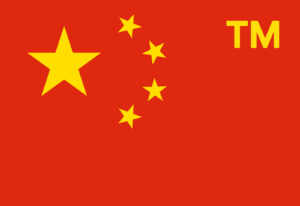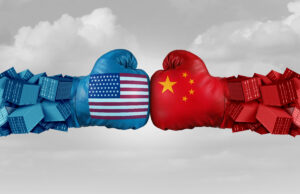Last fall, in U.S. Supreme Court to Rule on Important International Arbitration Issue, I wrote about an important international arbitration matter pending before the United States Supreme Court on whether foreign companies doing business in the United States can arbitrate a dispute with an American company.
The specific issue was:
Whether the New York Convention on the Recognition and Enforcement of Foreign Arbitral Awards (the “Foreign Arbitral Award Convention”) permits a non-signatory to an arbitration agreement to compel arbitration against a signatory to arbitration based on the doctrine of equitable estoppel. (GE Energy Power Conversion France SAS, Corp. v. Outokumpu Stainless USA, LLC, No. 18-1048). The question has split the circuit courts with the First and Fourth Circuits answering in the affirmative and the Ninth and Eleventh Circuits answering in the negative –– in other words right now the answer to the question depends on where in the United States the dispute is being litigated.
On June 1, the Supreme Court issued a unanimous opinion holding that the Foreign Arbitral Award Convention does not “conflict with domestic equitable estoppel doctrines that permit the enforcement of arbitration agreements by non-signatories.” This decision is good for foreign companies doing business in the United States and I explain why below.
Equitable estoppel in the context of a contractual agreement to arbitrate
When Company A enters into a contract with Company B and that contract includes an agreement to arbitrate disputes, courts in the United States will enforce the agreement to arbitrate in nearly every circumstance. But suppose Company B enters into a contract with Company C to fulfill its obligations under its contract with Company A and suppose Company C does not sign an agreement to arbitrate and has no direct contractual relationship with Company A. If Company A sues Company C for matters arising under Company A’s contract with Company B, can Company C require Company A to resolve the dispute in Arbitration?
The principles of equitable estoppel hold that Company C can compel Company A to arbitrate the dispute in most circumstances. In the arbitration context, “equitable estoppel allows a non-signatory to a written agreement [Company C] containing an arbitration clause to compel arbitration where a signatory to the written agreement [Company A] must rely on the terms of that agreement in asserting its claims against the non-signatory [Company C].” At issue in GE Energy Conversion France was whether the Foreign Arbitral Award Convention precludes foreign companies from relying on equitable estoppel doctrines. If the answer to the question is “yes,” then where Company C is a foreign corporation it cannot compel Company A to arbitrate and it faces the substantial risks and costs of litigating in an American (or perhaps a foreign) court instead of the generally more streamlined procedures available in arbitration.
The facts giving rise to the equitable estoppel issue are fairly commonplace
In 2007, an American company, ThyssenKrupp Stainless USA, entered into three contracts with F.L. Industries, Inc. for construction of cold rolling mills at ThyssenKrupp’s steel manufacturing plant in Alabama. These contracts provided that all disputes arising between the parties in connection with the contracts would be submitted to arbitration. F.L. Industries then subcontracted with a French company, GE Energy Power Conversion France SAS, to design, manufacture, and supply motors for the cold rolling mills. GE Energy France was not a signatory to an agreement with ThyssenKrupp to arbitrate any disputes that arose out its work. Not long after GE Energy France supplied nine motors to the ThyssenKrupp plant in Alabama, ThyssenKrupp was acquired by Outokumpu Stainless USA, LLC.
Outokumpu claimed GE Energy’s motors failed and caused it substantial damages. Outukumpu and its insurers filed a lawsuit against GE Energy in Alabama state court. GE Energy removed the case to federal court under 9 U.S.C. § 205—which permits removing a state court action to federal court if the action relates to an arbitration agreement falling under the Foreign Arbitral Awards Convention. After removing the lawsuit to federal court, GE Energy asked the federal court to dismiss the lawsuit and compel arbitration on the basis of equitable estoppel – i.e. the arbitration provision in the contracts between ThyssenKrupp and F.L. Industries.
The Supreme Court holds the Foreign Arbitral Awards Act does not preclude equitable estoppel
The federal district court granted GE Energy’s motion to dismiss and to compel arbitration but it did not rule on whether the arbitration agreement was enforceable under principles of equitable estoppel. The Eleventh Circuit Court of Appeals reversed the decision of the district court. It ruled that the Foreign Arbitral Awards Convention requires the parties actually sign an agreement to arbitrate. Because GE Energy France was not a signatory to the contracts between ThyssenKrupp and F.L. Industries, the Eleventh Circuit Court of Appeals further held that GE Energy could not rely on state-law equitable estoppel doctrines to enforce the arbitration clauses because it was not a signatory to the contract that contained the arbitration provision. The Eleventh Circuit reasoned that equitable estoppel conflicted with the Foreign Arbitral Awards Convention. Other appellate courts had come to the opposite conclusion and the Supreme Court took the case to resolve this split in the circuit courts.
The Supreme Court reversed the Eleventh Circuit and held GE Energy France could rely on equitable estoppel doctrines to compel Outokumpu to arbitration. In other words, the Court held that a foreign company can rely on state-law equitable estoppel to compel an American company to arbitrate a dispute, even though the foreign company was not a signatory to an agreement to arbitrate.
This ruling provides welcome clarity to foreign businesses operating in the United States and it gives foreign businesses another tool to avoid litigating disputes in American courts, which are notoriously expensive and time consuming when compared to other forms of dispute resolution. In terms of this one case, however, the Supreme Court declined to rule on whether GE Energy’s equitable estoppel argument was a winning one and it remanded that question to the Eleventh Circuit Court of Appeals for further proceedings.
























